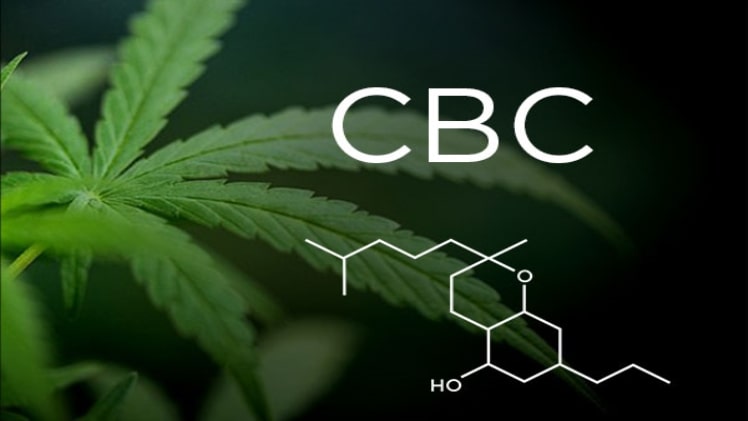CBC cannabinoid inhibits the uptake of anandamide. This, in turn, reduces inflammation and helps fight depression. But what exactly does CBC do? Read on to find out! And stay tuned for more articles like this one! Now that you know what CBC cannabinoid is, how it works, and how it can help you! Until then, have fun reading! Or you can visit this https://www.stateofmindlabs.com/store/CBC-Isolate-CBC-Distillate-p439053652 link.
CBC cannabinoid is a non-psychoactive cannabinoid
CBC is a non-psychoactive can cannabinoid. In animal studies, CBC inhibits contractions induced by KCl, ACh, and EFS, and CBC has anti-inflammatory properties. It also inhibits hypermotility caused by inflammation in vivo. The action of CBC on the body may extend beyond just anti-inflammatory properties.
The CBC cannabinoid competes with several pharmaceuticals for the liver, so it’s vital to source a reputable manufacturer. Not all manufacturers produce pure cannabinoid concentrates, and CBC concentrates must be extracted with the help of a highly skilled chemist and high-tech testing equipment. CBC is not psychoactive, so that you won’t feel any effects from CBC in the short term.
It inhibits the uptake of anandamide:
It has been proven that CBC cannabinoid inhibits anandamide uptake in the brain. This is because it has been shown to increase the viability of developing brain cells. Furthermore, it has been found to inhibit the growth of some types of cancer. This is possible because of its interaction with anandamide, a naturally produced endocannabinoid produced in the body.
Inflammation is associated with various health problems, including cardiovascular disease and auto-immune disorders. In a 2010 study, CBC alone induced anti-inflammatory effects in animals and was less toxic than common pharmaceuticals. However, CBC is shown to be more effective when combined with CBD and THC, which create an entourage effect. Combined with THC, CBC inhibits anandamide uptake and can be more effective for treating inflammation and pain.
It reduces inflammation:
The CBC cannabinoid is a molecule with therapeutic potential over other cannabinoids. This cannabinoid can lower inflammation and reduce pain by interacting with a TPR receptor. It has several benefits over other cannabinoids, including its potent antimicrobial properties. This could mean that it will be able to combat bacteria such as staph and the hard-to-treat MRSA.
Inflammation and pain are the two major problems that many athletes face, and CBC could be an effective alternative to harmful NSAIDS and addictive painkillers. CBC does not bind to CB1 or CB2 cannabinoid receptors in the brain. Instead, it binds most efficiently to vanilloid receptor 1 (TRPV1) and transient receptor potential ankyrin 1 (TRPPA1) receptors, which are involved in pain perception. In rats, CBC had a significant analgesic effect by interacting with proteins involved in nociceptive control.
It fights depression
CBC, a cannabinoid found in hemp, is being studied for its ability to combat depression. It is ten times more effective than CBD and has many other potential benefits for the brain and body. Among its other benefits, the best CBC oils can reduce stress and raise levels of the brain’s bliss molecule, anandamide. These findings could lead to new treatments for degenerative diseases and brain injuries.
The CBC cannabinoid in marijuana has antidepressant properties, but it doesn’t seem to activate the same pathways in the brain that THC does. It is thought to improve the viability of developing brain cells and inhibit the growth of certain types of tumors. It works by interacting with the body’s natural endocannabinoid, anandamide, and inhibiting its uptake, so it stays in the bloodstream for extended periods.
It fights bacteria and fungi:
CBC cannabinoid is a phytocannabinoid that has profound health benefits. This compound originates from cannabigerol acid and is converted into cannabichromene carboxylic acid after passing through an enzyme called CBC synthase. CBC fights bacteria and fungi and has antibacterial, antifungal, and mood-boosting properties. CBC is the first cannabinoid to exhibit these antibacterial and antifungal properties.
CBC has anti-inflammatory properties and interacts with ECS to stimulate a more significant anti-inflammatory response than either cannabinoid alone. CBC inhibits the processes responsible for the degradation of the CB receptors, enhancing the activity of other cannabinoid receptors. The anti-inflammatory properties of CBC have been studied for their ability to treat migraines and promote bone growth. It is a good anti-inflammatory compared to THC and cannabichromene, which are both directly involved in inflammation.
It fights inflammation-induced hypermotility:
Researchers have found that the CBC cannabinoid can fight inflammation-induced hypermotility, an inflammatory disease. It is an active ingredient in cannabis and has therapeutic benefits in treating inflammation-induced pain. The anti-inflammatory drug phenylbutazone has been discontinued for humans due to its adverse side effects. In contrast, the CBC cannabinoid has been shown to reduce inflammation and improve human bone density.
In a study with mice, the CBC cannabinoid significantly reduced intestinal permeability and alleviated symptoms of experimental colitis. In addition, it inhibited the production of nitric oxide, a pro-inflammatory chemical produced by the body when it is made in excess amounts. In addition to causing migraines, excessive nitric oxide is also toxic to brain cells and can lead to neurodegenerative diseases.

